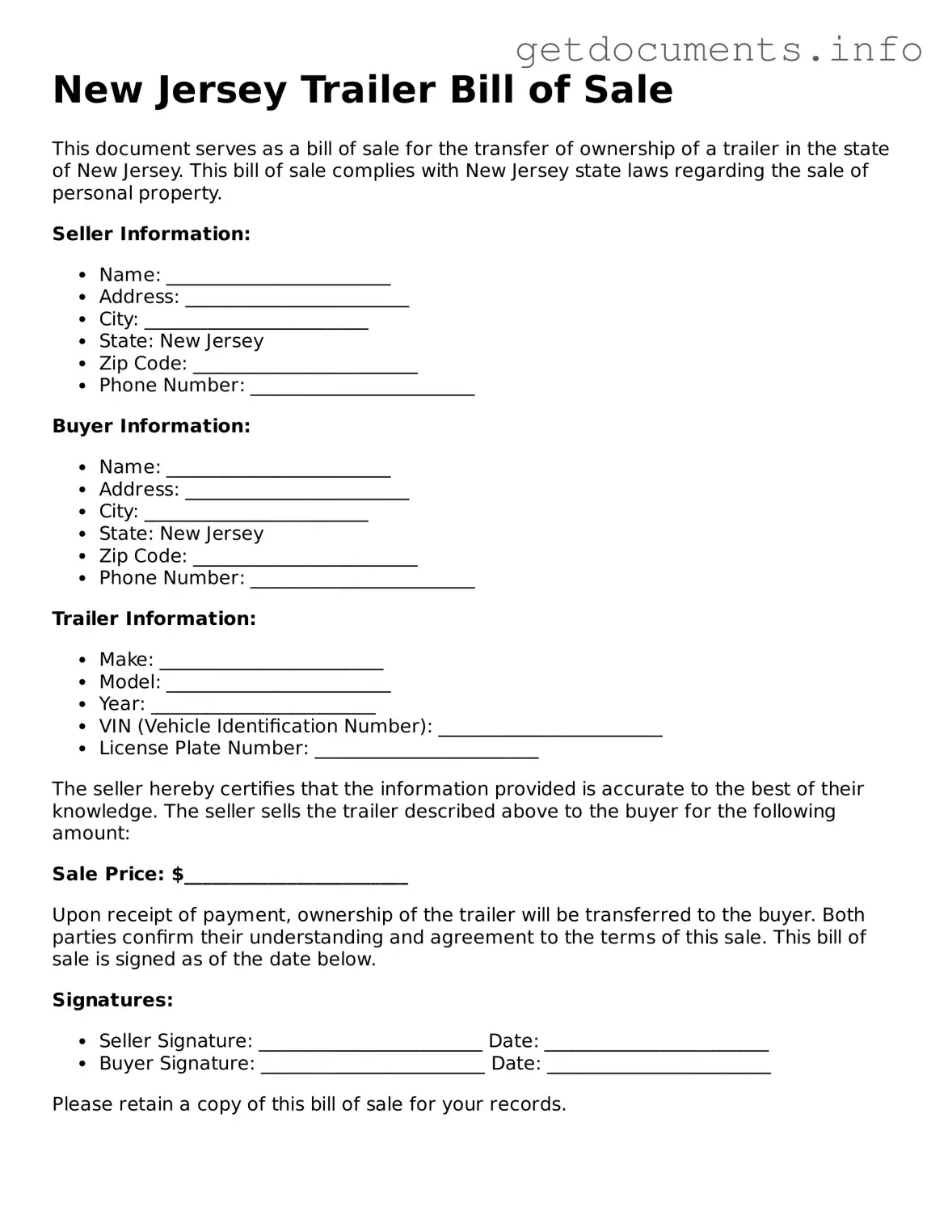Free Trailer Bill of Sale Template for New Jersey
The New Jersey Trailer Bill of Sale form serves as a legal document that records the transfer of ownership for a trailer in New Jersey. This form protects both the buyer and seller by providing essential details about the transaction, including the trailer's identification and sale price. To ensure a smooth transfer of ownership, consider filling out the form by clicking the button below.
Access Trailer Bill of Sale Editor

Free Trailer Bill of Sale Template for New Jersey
Access Trailer Bill of Sale Editor
Got places to be? Complete the form fast
Fill out Trailer Bill of Sale online and avoid printing or scanning.
Access Trailer Bill of Sale Editor
or
⇩ PDF File
